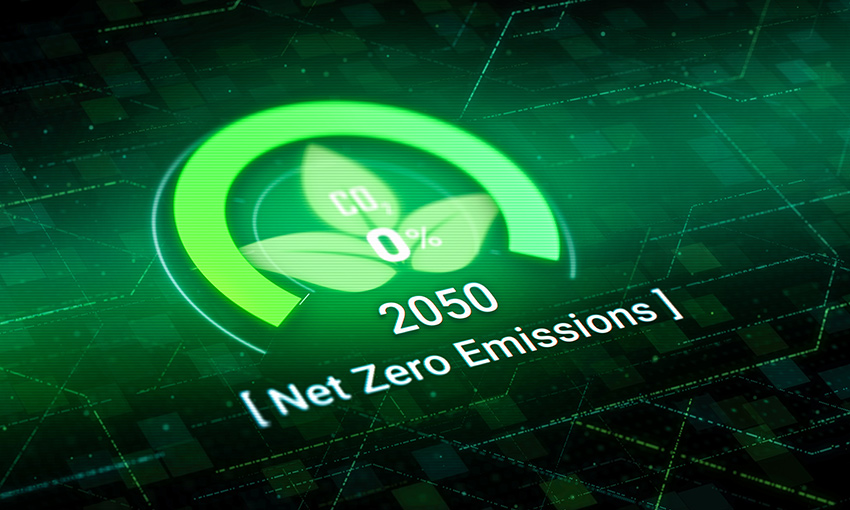THE WORLD Shipping Council is proposing a greenhouse gas pricing system to the International Maritime Organization ahead of IMO MEPC 81 in March,
WSC said the IMO needs to develop climate regulations by 2025 that would help industry meet the net zero carbon emissions target IMO has set for 2050.
According to WSC, a core challenge is craftting a global greenhouse gas pricing regulation that could bridge the price gap between the cleanest fuels and fossil fuel – driving investments in green fuels, without imposing an outsized cost on the global economy.
As member nations prepare for negotiations at the IMO MEPC 81 in March, WSC is bringing to the table a proposal on greenhouse gas pricing that can help solve the conundrum.
As a significant emitter of greenhouse gases, the shipping industry is doing its part and decarbonise by 2050.
Container and vehicle carriers are building and already operating vessels that can run on the greenest fuels, but those fuels cost three to four times more, and the supply of green fuels is only a fraction of what is needed.
Global climate regulations are necessary to make it possible for carriers to operate on green fuels and to incentivise fuel and energy providers to invest in new production capacity.
The WSC Green Balance Mechanism outlines a new approach to greenhouse gas pricing which the council believes would make it possible to close the price gap between fossil fuels and green fuels, at the lowest possible overall cost.
The plan is as follows.
Through the Green Balance Mechanism fees are taken from fossil fuels and allocated to green fuels used, so that the average cost of fuel is equal.
The greater the greenhouse gas emission reductions a fuel delivers – on a well-to-wake lifecycle basis – the greater the financial allocation received.
The monies collected in any given year is determined by the amount of green fuels used, allowing for a relatively low fee at the start of the transition.
The minimum fee necessary to offset the price differential each year is collected and allocated to ships using green fuels that meet a specific greenhouse gas threshold.
This would ensure that green fuels can be produced and used and does so with the least possible cost to transportation.
The emission reductions required for a fuel to receive a price-balancing allocation are linked to IMO decarbonisation requirements, increasing in stringency toward the 2050 net-zero goal.
The Green Balance Mechanism is adaptable and fully integrated with a greenhouse gas fuel-intensity standard.
It can be used as a targeted greenhouse gas pricing mechanism, or a possible addition to an integrated measure.
Other fees can be added to raise funds for climate mitigation initiatives and research, development, and demonstration projects to provide a just and equitable transition.
WSC believes the Green Balance Mechanism would make it economically rational and attractive for both ship owners and energy providers to invest in fuels and technologies that deliver deep greenhouse gas reductions from the day the regulation takes effect.
Existing and soon-to-be delivered dual-fuel ships would be able to operate on the cleanest fuels, rather than having to wait years before economically viable fuels are available.
This is expected to allow production of the cleanest fuels to grow more quickly, accelerating economies of scale that will push down the cost of green fuels, getting us to zero in the most economically efficient way possible.
Evergreen CEO KH Wu said collective action was vital for the liner shipping industry to decarbonise.
“It is essential to have a new approach to greenhouse gas pricing that would drive demand for cleaner fuels from the start of the transition. We need the support of authorities, vendors, and customers. Together, we can decarbonise,” he said.
HMM CEO Kyung Bae Kim said climate change was “a defining issue of our time” and his company shared the sustainability vision of the global shipping industry.
“To achieve net zero emissions by 2050, HMM has focused on enhancing carbon footprint visibility, ordering methanol-powered vessels, and exploring clean energy sources, including biofuels, methanol, and ammonia,” he said.
MSC Mediterranean Shipping Company CEO Soren Toft said while MSC was committed to a net zero target by 2050, other companies needed to come to the party.
“We also need the commitment from energy producers to provide alternative fuels to meet our target, and they need to be incentivised to produce them,” Mr Toft said.





